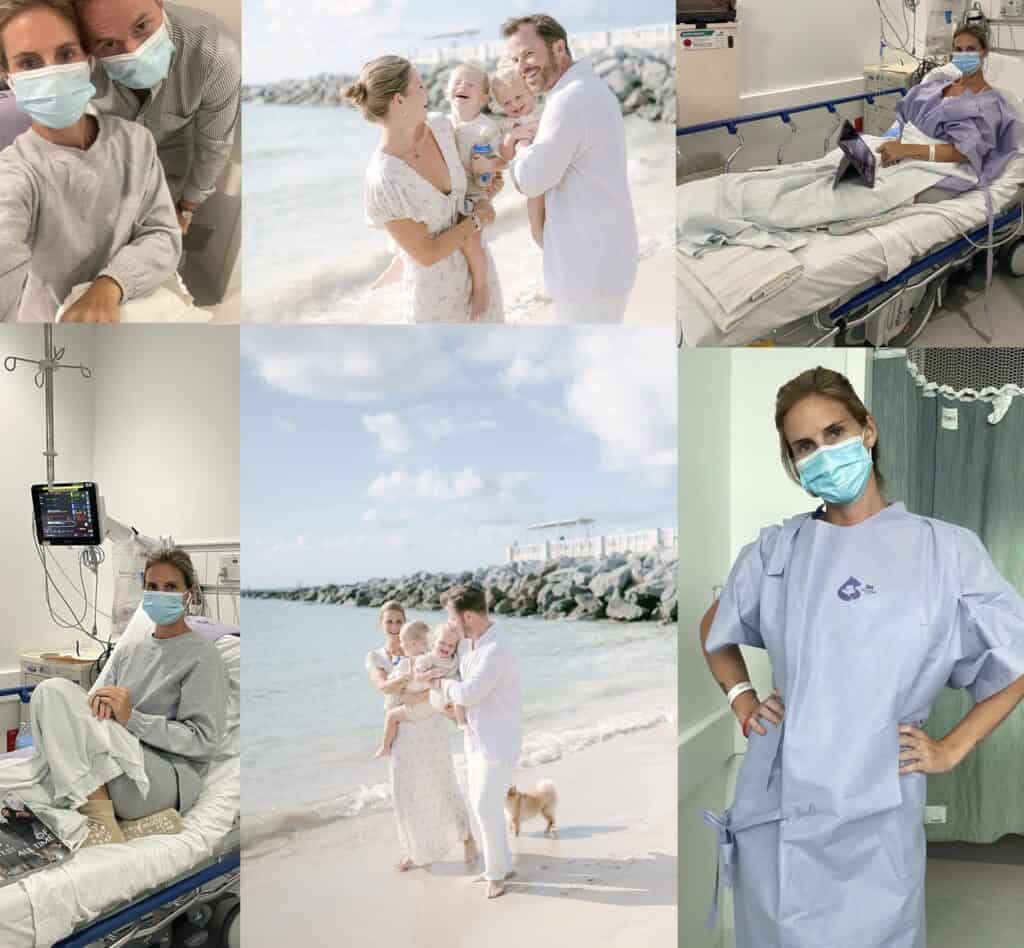
The feeling that something was wrong with her body nagged at Valerie Engel. She had two small children, was active and overall, very healthy. “I think people thought I was crazy, but I had this constant inner feeling that I had cancer,” she recalled. She was 34 and had no family history of breast cancer. And yet the feeling just kept tugging at her, so she chose to listen to her body. “I knew something wasn’t right,” she said. “I’ve always been very healthy. I believe it’s important to connect with your mind and body.”
Listening To Your Inner Voice
Determined to listen to her inner voice, Valerie asked her doctor about scheduling a mammogram. At first, he resisted, telling her it was too early, that she should wait until she turned 40. Undeterred, she kept insisting. “It’s important to listen to your inner voice,” she said. “Fight for yourself, no matter how impossible the situation seems.”
Valerie’s doctor finally agreed to schedule a mammogram for her. In the weeks leading up to it, she found herself getting anxious. “I’m never worried about going to the doctor. I’ve had surgeries before, I had c-sections. But for some reason this was making me nervous,” Valerie said. She asked friends if they had gone in for mammograms, but they all said no, they weren’t yet 40.
“I started questioning myself then, worried I was overthinking,” she said. “But I still went and did it.” While it was her first mammogram, she noticed the technician seemed to spend more time on one breast than the other. Once the mammogram was done, the office told her she probably wouldn’t need another one for two or three years.
Follow Up Testing
“I thought great, it’s done,” she said. “They told me if everything was fine, I wouldn’t hear from them. It was almost Christmas, so I was buying presents and my phone rang and I was nervous to see it was the doctor. I knew something was wrong.”
Valerie had a second (diagnostic) mammogram, followed by an ultrasound and two biopsies. The results confirmed she had stage 1B breast cancer. “It’s a feeling I cannot describe. It’s really like a bus hits you straight in the face,” she said. “I was by myself, not expecting this news. And then I had to go home and tell my husband, and I needed to tell my mother, who was in France.”
Choosing the Right Surgery
Days later, Valerie met with her doctor. “He explained everything and put me at ease. I had never met anyone who had breast cancer,” Valerie explained. “You get so many options and so much information. Did I want a lumpectomy or a bilateral mastectomy? It was overwhelming.”
When an MRI revealed the cancer had affected her nipple and areola, Valerie knew which surgery she wanted. “With this news, I decided to remove everything, to have a bilateral mastectomy,” she said. “In France, my mother said they were against a bilateral mastectomy, that I should go to France for treatment, so I really felt like I was torn between two directions, the French side and the American side.”
Valerie stood her ground. “I’m very strong minded,” she said. “From the start I liked my doctor, I trusted him, and for me, I wanted the bilateral mastectomy.” She had the surgery, followed by immediate reconstruction.
“Of course, a bilateral mastectomy can feel like taking your identity as a woman away,” Valerie said. “It’s kind of hard to accept because it feels like you have a new body, but I feel like for me I made the right choice.”
The Importance of Advocating for Yourself
She sometimes thinks about what might have happened had she listened to her doctor initially, when he recommended waiting for a mammogram until she turned 40. “I probably would have died,” Valerie said. “Instead, it was caught very early. It’s better to be proactive rather than just waiting and sweeping something under the rug. You have to be strong minded and push for yourself.”
Breast cancer screening and early detection play an important role in your health. Screening tests can help detect breast cancer at an early stage when the chances of survival are highest. Learn more about breast cancer screening and early detection.
Statements and opinions expressed are that of the individual and do not express the views or opinions of Susan G. Komen. This information is being provided for educational purposes only and is not to be construed as medical advice. Persons with breast cancer should consult their healthcare provider with specific questions or concerns about their treatment.



